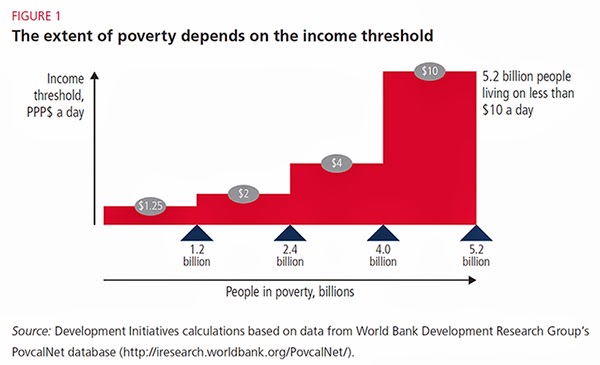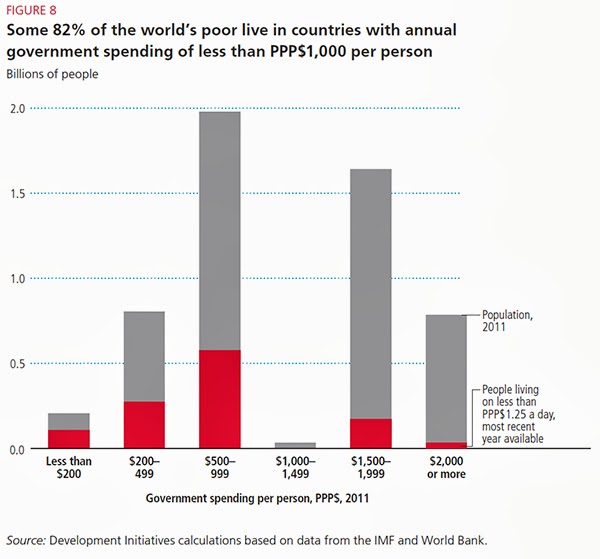The best take on the new cash benchmarking study from Rwanda was this one by Michael Kevane:
That's one big advantage of cold hard individual cash transfers, they make explicit what the actual amount per person is, which is not so obvious when its one big community project costing loadsamoney and affecting loadsapeople. John Quiggin made this point years ago.
Last year, DFID gave £2.6 BILLION pounds to countries in Africa. That's so much money! How are they still so poor when we give them BILLIONS of pounds every year? Well, hold on, there are 1.2 billion PEOPLE in Africa. So that works out at just over £2 each for the whole YEAR. Of course it doesn't go to everyone, let's say the money is perfectly targeted on the poorest 10% of people. So they get £20 each.
Somehow there is a lot of magical thinking that by pooling money together it somehow automatically has totally outsized impacts. Of course its possible that smart investment in research or better governance can have truly outsized impact if it can nudge a country toward a slightly higher growth rate, but that isn't what most aid is even trying to do, and even when it is they stuff is wicked hard and we can expect most attempts to fail.
Aid is great but less hubris please. And less ridiculous implicit expectations from what aid could plausibly achieve from the sceptics too.
"the main takeaway is that neither intervention (when evaluated at the low Gikuriro cost of $141 per household) improved child outcomes." Yikes. I guess though if household size = 7 that is only $20 per person.Should we really be surprised that giving someone $20 doesn't improve any measurable outcomes? Maybe Kevane's maths is wrong and household size is smaller, but $20 is so small we could double it and still not expect to see anything.
That's one big advantage of cold hard individual cash transfers, they make explicit what the actual amount per person is, which is not so obvious when its one big community project costing loadsamoney and affecting loadsapeople. John Quiggin made this point years ago.
Last year, DFID gave £2.6 BILLION pounds to countries in Africa. That's so much money! How are they still so poor when we give them BILLIONS of pounds every year? Well, hold on, there are 1.2 billion PEOPLE in Africa. So that works out at just over £2 each for the whole YEAR. Of course it doesn't go to everyone, let's say the money is perfectly targeted on the poorest 10% of people. So they get £20 each.
Somehow there is a lot of magical thinking that by pooling money together it somehow automatically has totally outsized impacts. Of course its possible that smart investment in research or better governance can have truly outsized impact if it can nudge a country toward a slightly higher growth rate, but that isn't what most aid is even trying to do, and even when it is they stuff is wicked hard and we can expect most attempts to fail.
Aid is great but less hubris please. And less ridiculous implicit expectations from what aid could plausibly achieve from the sceptics too.


